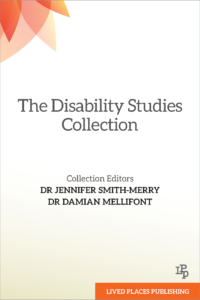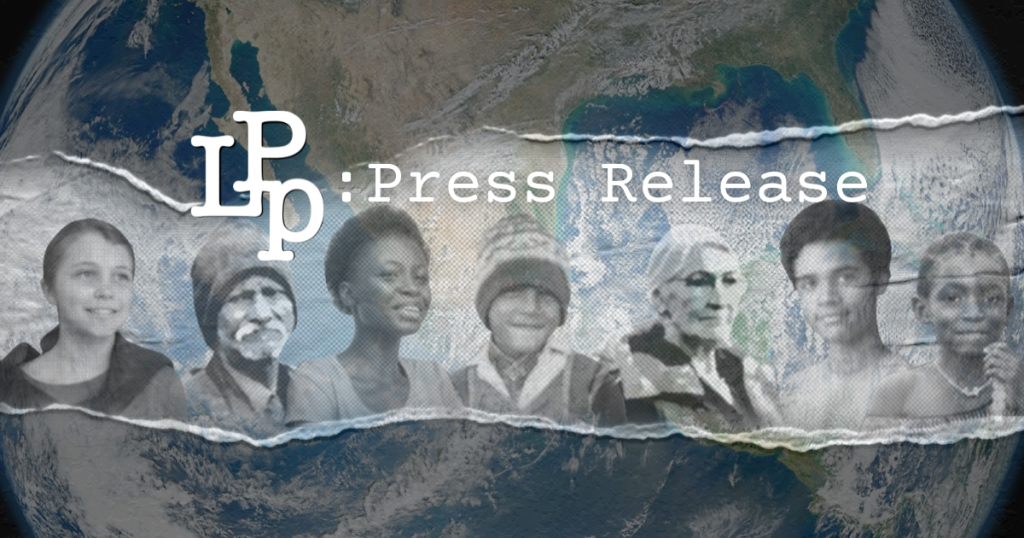Your Story Can Help to Fuel a Disability “Inclusive Places” Revolution
By Dr Damian Mellifont and Dr Jennifer Smith-Merry, Collection Editors
A note about language: While person-first language (i.e., “people with disability”) is popularly used among Australian academics, which is the context from which we are speaking, this by no means excludes people who identify themselves in other ways. We encourage individuals to make choices about how they refer to themselves.
Nothing About Us Without Us! Five words that neatly sum up the disability inclusion mantra. Five words that, if consistently put into practice, would improve the lives of millions of people with disability in places around the globe. Much is spoken on the topic of diversity and inclusion. However, disability tends to be overlooked within these important conversations. Even where disability inclusion is discussed, the voices of people with lived experience can all too often be drowned out by those of non-disabled persons who want to speak on behalf of people with disability. Recognising that the voices of sincere disability allies should be respected, these voices are no more important than those of people whose knowledge about disability comes from first-hand experiences. Drowning out disability voices promotes a world in which social and economic disadvantage will continue to reign, because without these voices we are blinded to what it actually means to be subject to this inequity.
How is it that such blatant inequity not only continues, but in some places thrives? The answer to this pressing dilemma largely comes down to an “ism”: namely, ableism. Ableism (i.e., discrimination against people with disability) resides in many “Lived Places”, including physical, institutional and social places. For example, ableism lives in a job selection panel who writes off a candidate because they have chosen to disclose their disability in an interview. The foul stench of ableism can be found in the boards of disability organisations which assume that people with disability are lacking in financial, policy, and sector abilities and subsequently excludes them from board membership. It is alive in a disability research facility where positions, research direction, and knowledge production about disability continue to be dominated by people who have no lived experience – where academics continue to speak for rather than with. It inhabits the mass media where news stories portray people whose brains think in notably different ways to the norm as “crazy” and “dangerous” to sell stories. Ableism is personified in the politician who views people with disability as inferior, useless, and unworthy of resources because they perceive that supporting these persons will not win them votes. It dwells in the family who decide to exclude a member because of their disability. And ableism flourishes in medical ideology demanding that people be “cured” of their neurodivergence, or in some cases, that their differences be eliminated through medical technologies.
While these examples may seem extreme, they are all real in the lives of many people with disability and show that ableism is far from harmless. Without explicitly countering ableism, the hopes for lived places to be genuinely inclusive of people with disability can quickly die. Ableism attempts to convince people with disability that the inequities they experience cannot ever change and that any attempts of resistance are merely exercises in futility.
The good news is that ableism can be defeated! As ableism feeds on silence and ignorance, our world so desperately needs a disability “inclusive places” revolution. This grassroots revolution, fuelled by a sharing of lived experiences, supports a greater inclusion of people with disability across all geographic, conceptual, and physical places.
Who gets a voice about disability in an “inclusive places” revolution? Within Lived Places Publishing (LPP) books, you do! You are the voice of your experience of disability and your voice can be a powerful force for positive change. Nobody else can or should tell your story of disability. LPP is a place where your voice will be heard, valued, and promoted around the world. The Disability Studies Collection of LPP wants to know about your lived experiences. As collection editors, we want to hear about the good and the bad (e.g. ableism as well as other challenges experienced), and, importantly, the ways forward that will help make places more inclusive of people with disability.
Appreciating that this is your disability story to tell, we are here to support you to tell it. So proudly raise your voice, share your lived experiences, and help to fuel a disability “inclusive places” revolution!
|
To submit a proposal, click here: Call for Authors To see the vision for the Disability Studies Collection, or get in touch with Dr Jennifer Smith-Merry and Dr Damian Mellifont, click here: Disability Studies To stay connected with Lived Places Publishing, you can subscribe to our email list, to our channel on Medium, or to our Substack list. |
 |
IMAGE CREDIT: wongpear, used under the Pixabay Licence



